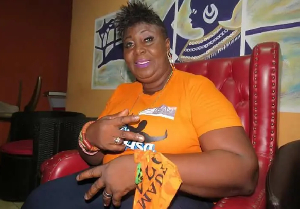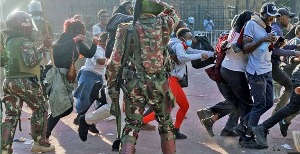The lack of acceptance of menstruation as a natural phenomenon has forced some women and adolescent girls to keep their period secret, resulting in improper hygiene practices, research findings suggest.
It is also evidenced that taboos, secrecy and embarrassment associated with discussing menstruation hold back adolescents from seeking advice from parents and teachers on appropriate Menstrual Hygiene Management (MHM) practices.
The growing attention on menstruation as a development problem is highlighted in the works of the United Nations Children’s Fund (UNICEF) and other like-minded international organisations. UNICEF in particular provides the basis for a much-needed research and policy agenda to address the menstruation needs of women and girls across the globe.
Addressing a gathering of adolescent school girls and boys at Agbozume on Menstrual Hygiene Day 2021, education activist, Abla Dzifa Gomashie declared that menstruation in itself is not a problem but rather, maintaining hygiene during the menstrual period is an issue.
The Member of Parliament for Ketu South backed calls for the scrapping of the 20% import tax on sanitary pads which are categorised luxury goods in Ghana.
She believes when the tax is scrapped, sanitary pads would be more affordable and readily available to even the poorest school-going girls across Ghana.
“I join all advocates to demand that taxes are removed for easy access to the clean sanitary towels our girls need to remain in school and remove stigma. Menstruation is not a problem, poor menstrual hygiene is," she stressed and advocated for more investment in girls’ hygiene requirements.
The former Tourism Minister joined the Australian High Commissioner Ghana, Gregory Andrews, Mrs Rachael Andrews and officials of the Ketu South Education Directorate to celebrate World Menstrual Hygiene Day 2021 at Sukladzi R\C Basic School in Agbozume, Volta Region.
The event dubbed ‘The PeriodAid Project’, an initiative of Ghanaian journalist and rural development activist, Selorm Helen seeks to address Period Poverty through educational support and donation of sanitary towels to schoolgirls in economically challenged communities.
The event brought together four Primary and Junior High Schools; Sukladzi R/C, Logove A.M.E Zion, Klikor Unity number 1 & 2 and Lotakor E.P Basic School, all within the Ketu South Municipality.
Educating the girls on the essence of proper hygiene during menstruation, the Ketu South lawmaker highly recommended regular bathing, washing of underpants and clothes.
She said, “You will have bad body odour if you fail to bathe well, wash your private parts and clothes.”
In the wake of reports suggesting girls exchange sex for sanitary pads, Madam Dzifa Gomashie further cautioned the girls against sexual activities explaining that “When you start menstruating and you sleep with men, you will get pregnant and that will affect your education.
“As children, do what is expected of you and not what is meant for married adults. If not, you will regret any irresponsible actions you take,” she advised.
To encourage the girls, the Member of Parliament for Ketu South recounted how she studied hard and obeyed her parents as a child, which she credited for her current status.
Over 500 girls received at least a three-month supply of sanitary pads from the Period Aid Project team to reduce menstruation induced absenteeism among school girls in Agbozume-Klikor.
With support from the Australian High Commission, Ghana, the team received donations from the US Embassy Ghana, the Italian Embassy and the Embassy of Mexico in Ghana.
Regional News of Wednesday, 2 June 2021
Source: Selorm Helen, Contributor
Menstruation isn’t a problem; poor menstrual hygiene is - Dzifa Gomashie
Entertainment












